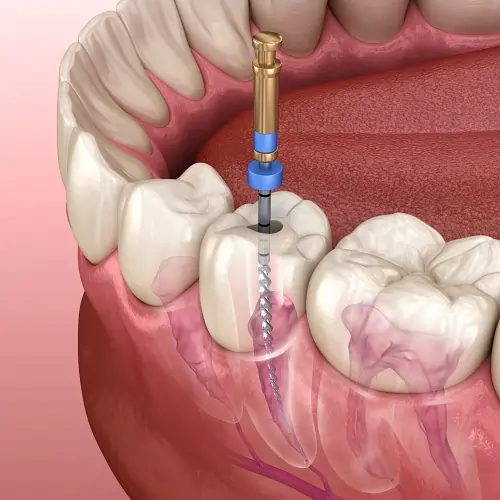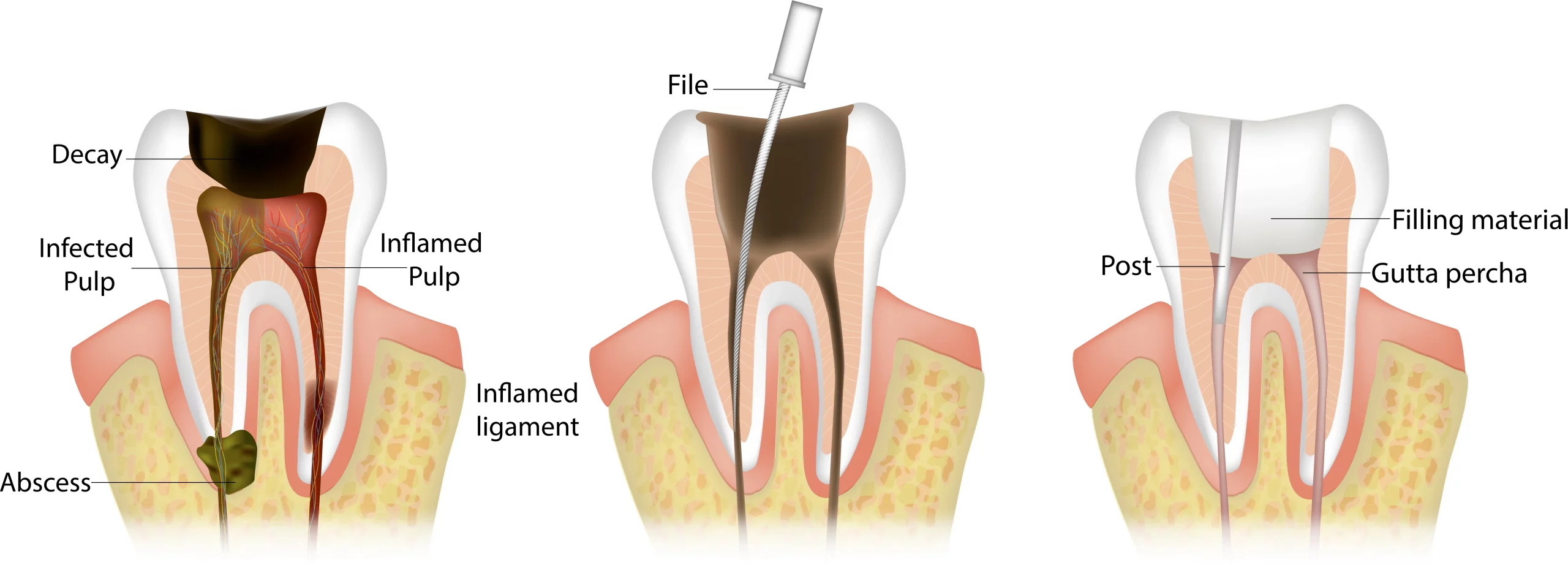



When you come in for your procedure, we will numb the treatment area with local anesthetic to ensure that your experience is as stress-free as possible. We can even turn on your favorite TV show or music for you to enjoy during your procedure. Your peace of mind is important to us! Dr. Mohamed Ibrahim will then drill into the tooth to clean out the root canals and then fill them to prevent further infection. We’re proud to say that Dr. Mohamed Ibrahim success rate is phenomenal; we have never had any re-treatments or complaints from our patients.

After your root canal procedure, you will have a few follow-up visits with Dr. Ghanim. During these visits, we will create a customized dental crown to restore the full health of your tooth.
If you are experiencing any dental pain, we encourage you to call Arlington Dental Excellence at (703) 420-3253 and schedule your appointment. Our highly-skilled dentists and team are here to care for your smile!
At Arlington Dental Excellence, we understand that getting tooth restoration, such as snap-on dentures, is a big decision. Here are some of the questions we are commonly asked about this procedure:
A root canal procedure usually takes 1 to 2 hours to complete. During the treatment, the dentist removes infected or damaged pulp from the tooth's root canals, cleans and disinfects them, and seals the tooth. The duration may vary depending on the tooth's complexity and the individual's condition.
A: It is generally recommended to avoid smoking after a root canal procedure. Smoking can have negative effects on the healing process and may increase the risk of complications. Smoking can slow down the healing of the treated tooth and the surrounding tissues, as it reduces blood flow and oxygen supply to the area.
A: Immediately following the procedure, you may be prescribed a pain medication. If not, over-the-counter pain relievers may be taken to ease any discomfort you are experiencing. If pain lasts more than a few days or you notice any abnormalities, contact our team immediately.
A: Yes, root canals can cause some discomfort during and after the procedure. However, the pain is usually manageable and can be controlled with local anesthesia and over-the-counter pain medications. Advances in dental technology and techniques have significantly reduced the pain associated with root canals in recent years. If you experience severe pain, always communicate with your dentist, as they can take steps to address your discomfort effectively.
A: After treatment, it is best to avoid eating and drinking while you are still feeling the effects of anesthesia. This will prevent you from burning your mouth or biting your tongue while your mouth is numb. For long-term care, it is important to continue with a thorough dental hygiene routine and to attend your biannual exams.
A: Each patient heals differently, but you will typically only experience mild pain and soreness for a few days after the procedure. In many cases, patients return to normal activities by the next day.


